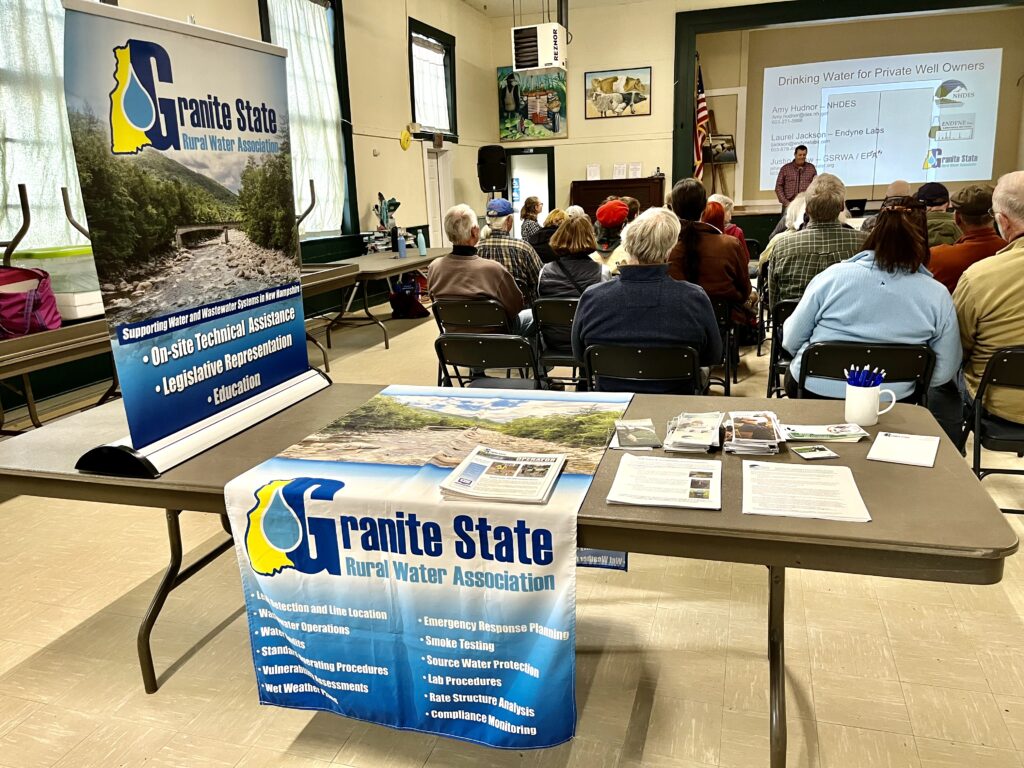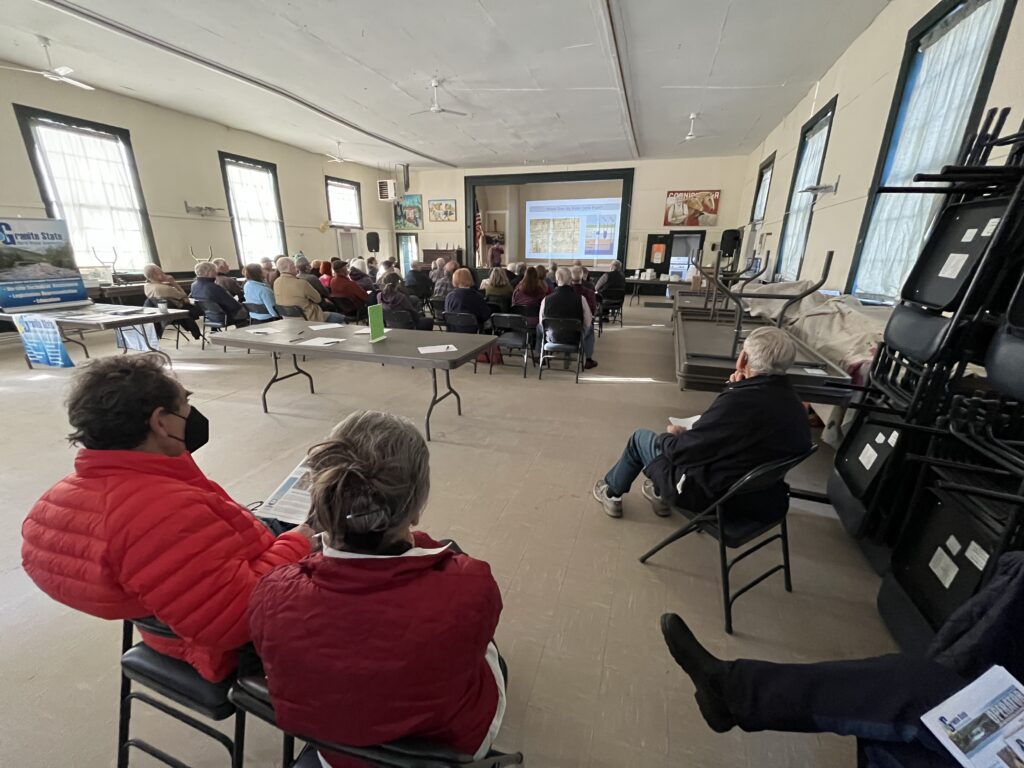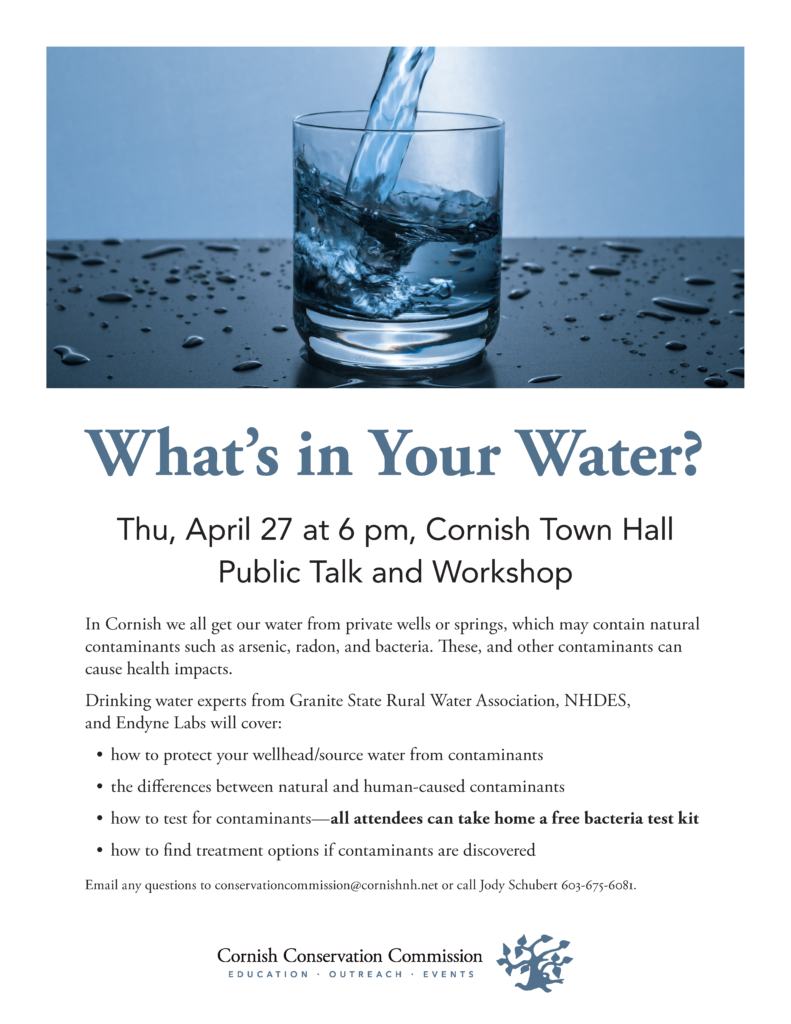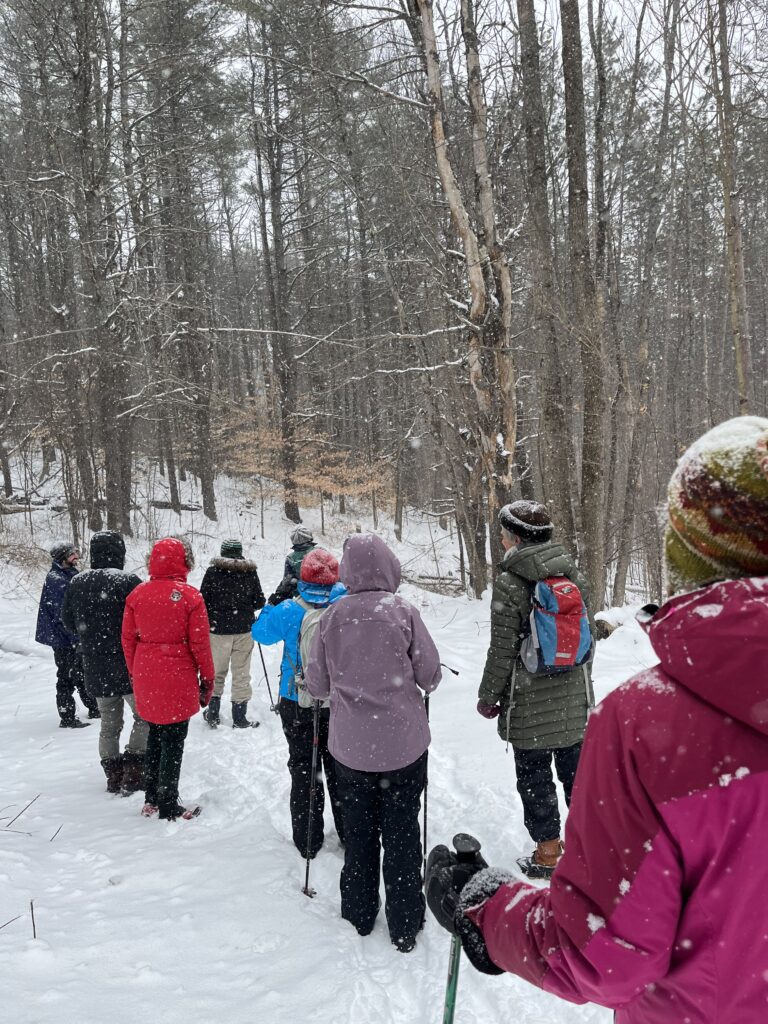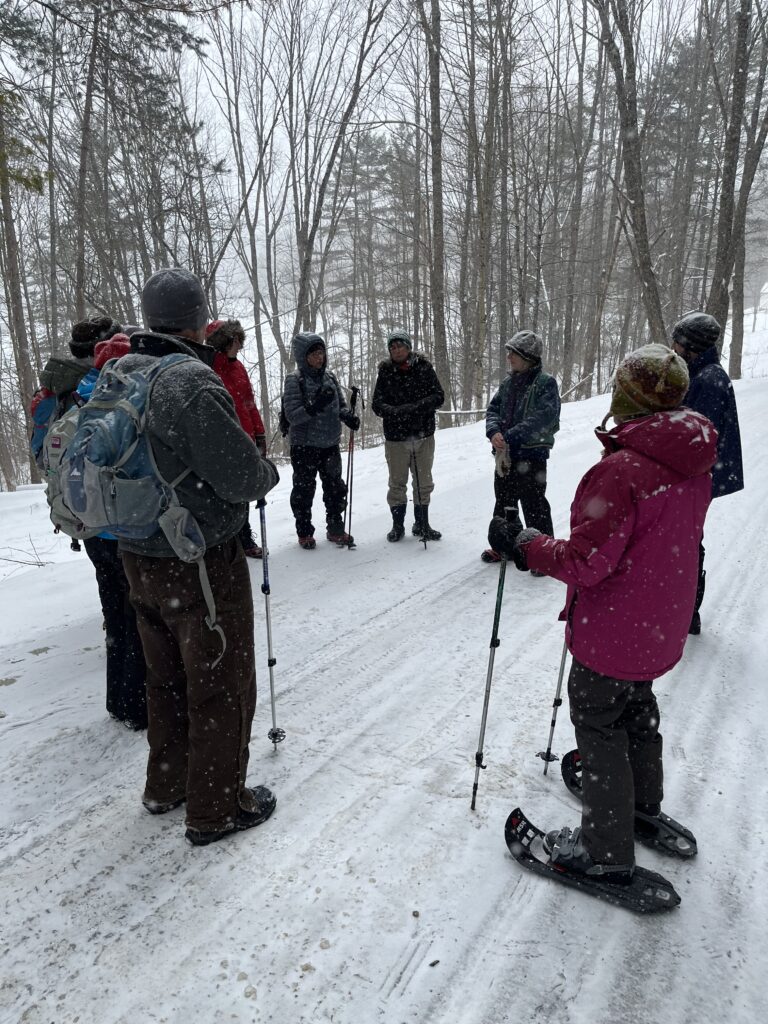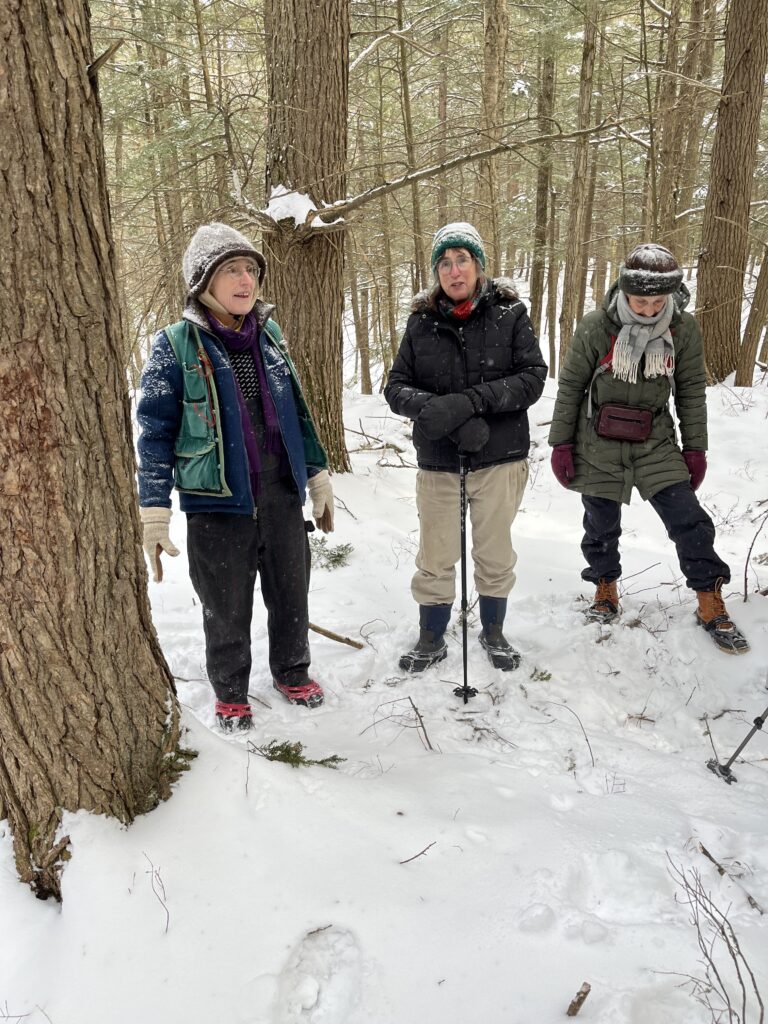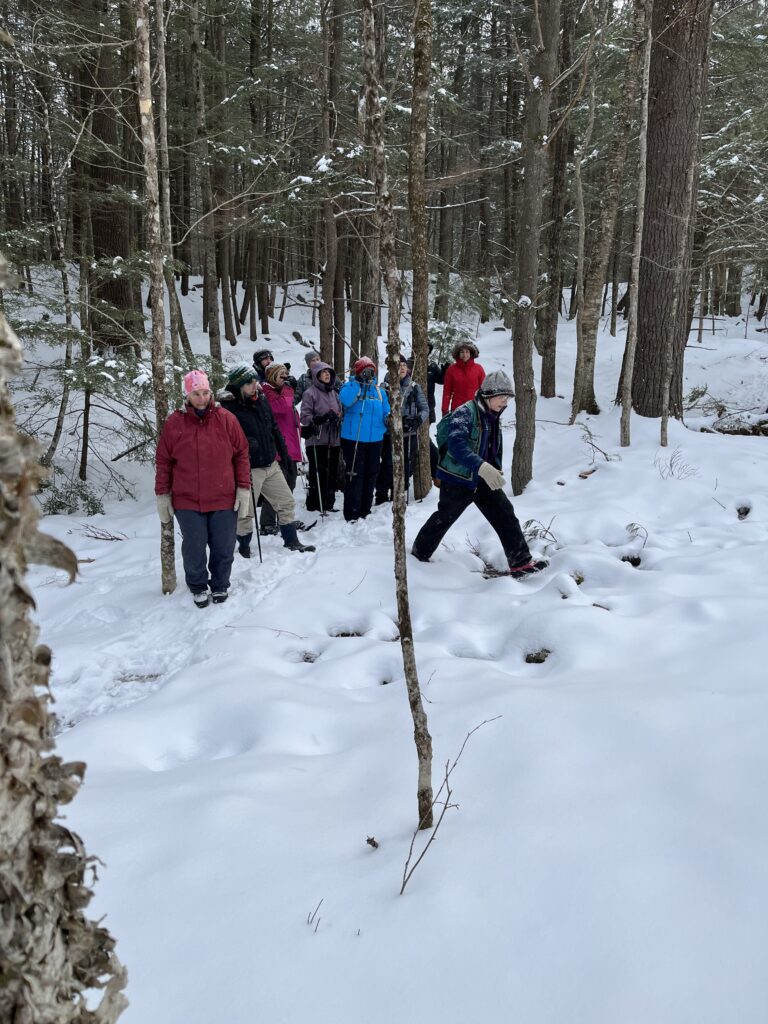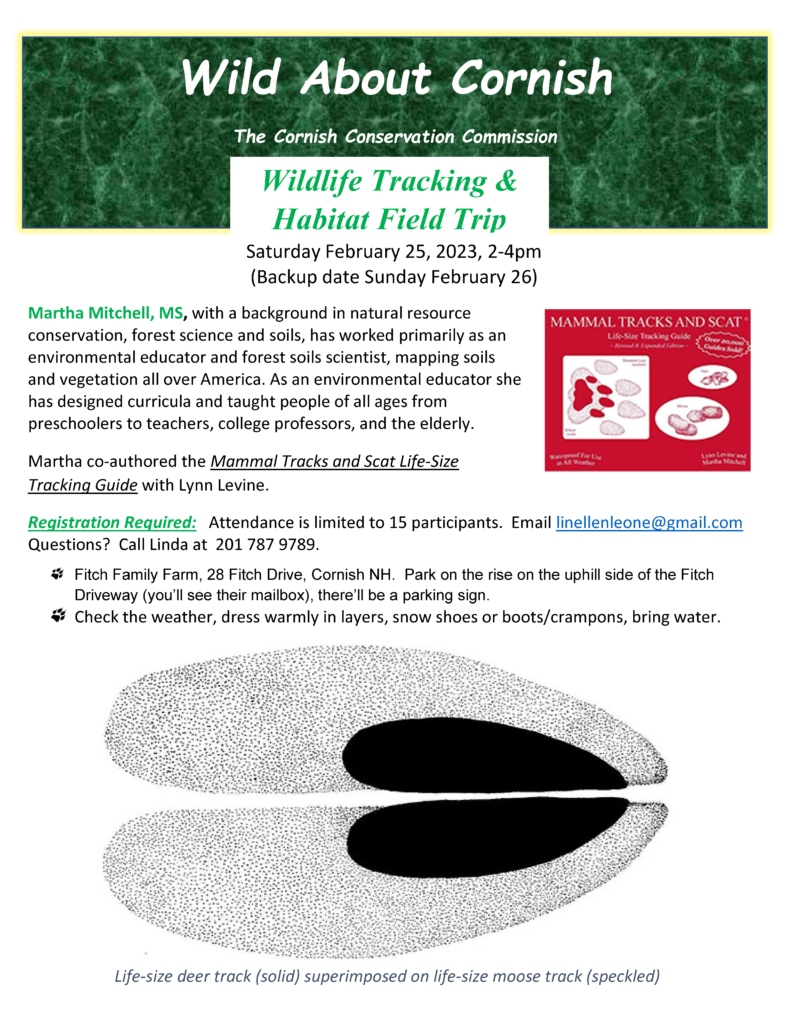Conservation Commission Past Events
The Cornish Conservation Commission hosted a public educational event for residents to learn about best practices to keep homeowner wellheads (drilled and dug wells) free from contaminants and providing safe and healthy drinking water.
Justin Shaw from Granite State Rural Water Association offered several simple and commonsense takeaways: keep the area around wellheads free of pesticides, fertilizers, gas, oil, other hazardous material spills, animal waste, runoff from snowmelt/rain. Also don’t dump hazardous materials down the sink, pump your septic system on a regular schedule. If you have a drilled well be sure you have a sanitary cap to seal it, that the above ground pipe is in good condition and the cap or top of the well is 8” above the ground surface. Good housekeeping is much easier and cheaper than drilling a new well!
Information about contaminants was shared by Amy Hudinor from NHDES. The source of contaminants can be from pollutants such as PFAS, MtBE and Sodium (from salting roads), or plumbing (lead and copper) or naturally occurring contaminants (arsenic, uranium, radon, and bacteria).
The recommendation is to test your water every 3-5 years, situations can change and contaminants can move through the soil. Three types of water test kits were supplied by Endyne Labs, and Laurel Jackson provided detailed information about the available tests and also provided a free, or discounted test kit to any attendee interested in testing their water. Once test results are received, residents plug their results into the NH Be Well Informed website to determine if any water treatment is necessary.
Approximately 50 residents attended the workshop, and for those who could not attend or those who want to review the information again, please click the link to view the PowerPoint presentation as offered by our speakers.
The CCC is pleased to bring important educational events such as this to Cornish residents and will continue to focus on the importance of protecting our water resources through land conservation, protection of all of the town’s natural resources as well as offering fun and educational events.
